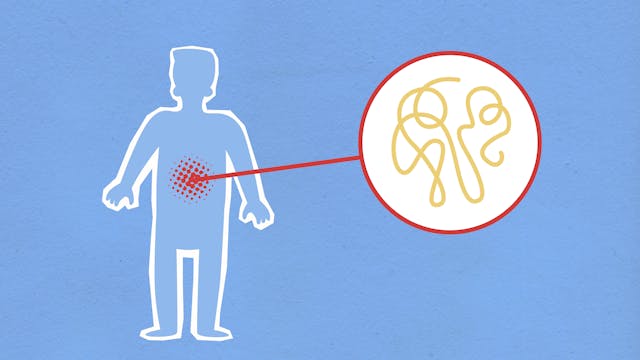YouStill.Live analyses the popular Carnivore Diet, exploring its benefits, risks, and long-term implications.
Table of Content:
Carnivore Diet
In recent years, the carnivore diet has emerged as a controversial and extreme dietary trend. It is gaining a significant following among those seeking weight loss, better mental clarity, and relief from chronic health conditions. At its core, the carnivore diet revolves around a simple premise: consume only animal-based foods and eliminate all plant-based foods. This includes meat, fish, eggs, and in some cases, dairy, while excluding carbohydrates, fruits, vegetables, grains, and legumes. It is a restrictive diet that positions itself as a more radical version of other low-carb regimens such as the ketogenic and paleo diets. While its advocates tout numerous benefits, critics point to the potential risks, including nutrient deficiencies and long-term sustainability concerns. Here, we aim to provide a comprehensive overview of the carnivore diet. We cover its claimed benefits, potential risks, and what the science says about its long-term implications.
What is the Carnivore Diet?
The carnivore diet is grounded in the idea that humans are optimized for an animal-based diet. And that many of the chronic diseases and health issues people face today stem from the consumption of processed carbohydrates, sugars, and even plant foods. This approach flies in the face of conventional dietary advice. Which typically recommends a balanced diet rich in vegetables, fruits, whole grains, and lean proteins.
On the carnivore diet, followers consume the following food groups:
- Meat: This includes beef, pork, lamb, chicken, turkey, game meats like venison, and even organ meats such as liver and kidneys.
- Fish and seafood: Fish like salmon, sardines, and other types of seafood such as shrimp and shellfish are encouraged.
- Eggs: Eggs from chickens, ducks, and other sources are commonly consumed.
- Animal fats: Fats from animal sources, such as tallow (beef fat), lard (pork fat), and butter, are central to the diet.
- Dairy (optional): Some variations of the carnivore diet include dairy products like butter, cream, and cheese. Though many proponents advise against it due to lactose intolerance or other sensitivities.
Notably, the diet excludes all plant-based foods:
- Fruits and vegetables: No consumption of leafy greens, fruits, or vegetables is allowed.
- Grains and legumes: Bread, rice, pasta, lentils, beans, and other carbohydrate-rich foods are eliminated.
- Sugars and sweeteners: Processed sugars, as well as natural sweeteners like honey, are not allowed.
- Plant-based oils: Cooking oils such as olive, coconut, or avocado oil are avoided, with the preference being for animal-based fats.
The Logic Behind the Carnivore Diet
Proponents of the carnivore diet often cite evolutionary biology as the basis for their approach. They argue that human beings evolved primarily as meat-eaters. And, that the inclusion of plant-based foods is a relatively recent development in human history. The diet’s advocates assert that our ancestors thrived on animal-based diets. They also claim that modern day ailments – ranging from obesity and diabetes to autoimmune diseases -are the result of introducing processed carbohydrates, sugars, and grains into our diets.
While the theory has its merits, it’s essential to recognize that the carnivore diet’s strict avoidance of plant-based foods diverges significantly from other ancestral or paleo-inspired diets, which often emphasize a variety of whole foods, including vegetables and fruits.

Potential Benefits of the Carnivore Diet
Supporters of the carnivore diet claim a variety of health benefits. Though many of these are based on anecdotal evidence rather than large-scale scientific studies. Some of the commonly cited advantages may include in the following list.
1. Weight Loss
Many people report rapid and significant weight loss when switching to the carnivore diet. Since the diet is high in protein and fat, it can increase satiety. Andd as such, leading to fewer cravings and reduced calorie intake. Additionally, by eliminating carbohydrates entirely, the body enters a fat-burning state known as ketosis. Similar to what occurs on the ketogenic diet. For those struggling with obesity or weight management, the carnivore diet may offer an effective means of shedding excess pounds, at least in the short term.
2. Reduced Inflammation
Some followers of the carnivore diet claim relief from chronic inflammation. Particularly conditions like arthritis, autoimmune disorders, and even skin issues like eczema. The logic here is that by removing potentially inflammatory foods like grains, legumes, and certain plant-based compounds, the body may experience reduced levels of inflammation. There are limited studies specifically on the carnivore diet. But research does suggest that a low-carb, high-fat diet can reduce inflammation markers in the body.
3. Improved Mental Clarity and Mood
Anecdotal reports often highlight improvements in mental clarity, focus, and mood after adopting the carnivore diet. Some individuals with depression or anxiety claim that the diet has helped them feel more balanced and emotionally stable. These improvements may be attributed to a more consistent supply of energy from fat metabolism and the elimination of processed carbohydrates. Which can cause blood sugar spikes and crashes.
4. Simplicity and Ease of Adherence
One of the primary appeals of the carnivore diet is its simplicity. With few food choices and clear-cut rules, meal planning becomes straightforward. This can be especially appealing for individuals who feel overwhelmed by more complex dietary regimens that involve tracking macronutrients or calories. By focusing solely on animal products, many find the diet easier to stick to in the short term.

Potential Risks and Drawbacks
While the carnivore diet may offer benefits for some, it is not without risks and concerns. Experts often caution against the long-term health implications of a diet so heavily skewed toward animal products.
1. Nutrient Deficiency
The most significant concern surrounding the carnivore diet is the potential for nutrient deficiencies. By eliminating plant-based foods, followers miss out on essential vitamins and minerals, particularly:
- Vitamin C: Critical for immune function and collagen production, this vitamin is primarily found in fruits and vegetables.
- Fiber: A diet devoid of fiber can lead to digestive issues, including constipation. Fiber is crucial for gut health, and its absence may negatively affect the microbiome.
- Magnesium and Potassium: Both of these essential minerals are abundant in plant foods. And deficiencies can lead to issues such as muscle cramps, fatigue, and electrolyte imbalances.
2. Digestive Issues
The lack of fiber in the carnivore diet can caus or exacerbate digestive problems. Especially for those who previously consumed a high-fiber diet. Constipation is a common complaint among new carnivore dieters. Additionally, the absence of prebiotics, which feed beneficial gut bacteria, may lead to an imbalance in gut health over time.
3. Increased Cholesterol Levels
One of the primary concerns with a diet so rich in saturated fat is its potential impact on cholesterol levels. While some individuals may not experience a rise in LDL (bad) cholesterol, others might see significant increases. Thiese are raising concerns about heart disease and cardiovascular health.
4. Sustainability and Long-Term Health Effects
The carnivore diet’s long-term sustainability remains a major question mark. While short-term results, such as weight loss and reduced inflammation, may be promising, the long-term effects on heart health, kidney function, and overall longevity are unknown. A diet heavily reliant on red and processed meats has been linked in studies to increased risks of colorectal cancer, heart disease, and other chronic conditions.
Final Thoughts
The carnivore diet is an extreme, highly restrictive dietary approach. It has garnered attention for its potential to promote weight loss, reduce inflammation, and improve mental clarity. However, it is not without significant risks, particularly regarding nutrient deficiencies, digestive issues, and concerns about cholesterol and long-term sustainability. Some individuals may find short-term success with the carnivore diet. But the lack of substantial scientific research on its long-term effects makes it a potentially risky choice for many. As with any diet, it’s essential to consult with a healthcare professional before embarking on such a restrictive regimen. Especially if you have pre-existing health conditions or concerns.


